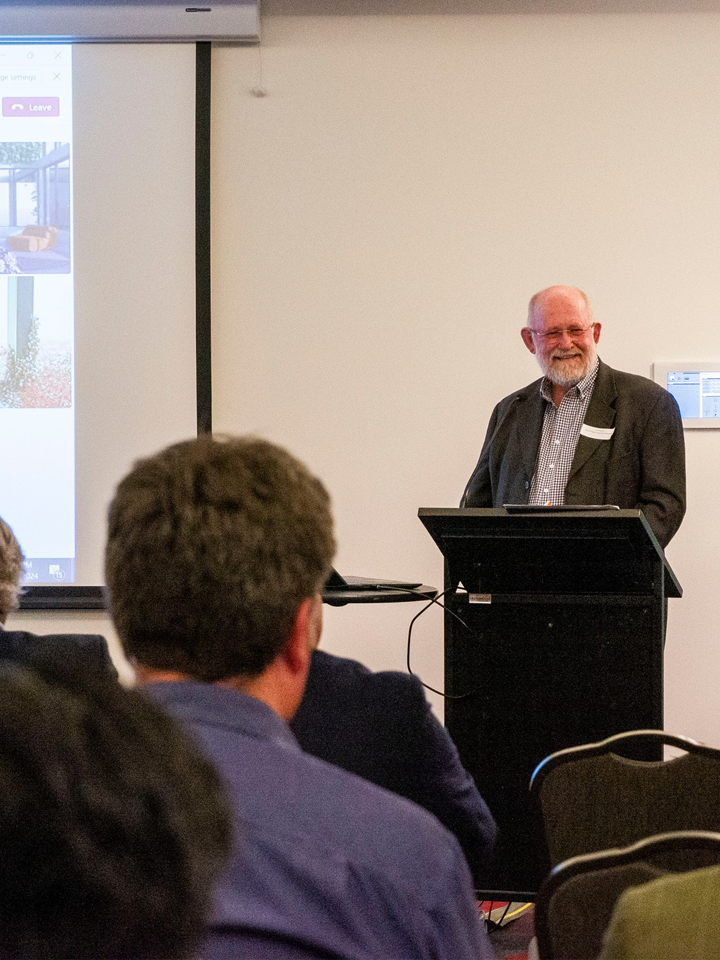We are not a service provider, nor can we provide direct referrals to particular organisations. For more information on other organisations that can help you, visit this page:
Strengthen and Support
Goal:
Strengthen and support a thriving community-based mental health and wellbeing sector.
How:
- Represent the concerns of our members in our advocacy to prioritise the viability and sustainability of the community-based mental health and wellbeing sector.
- Promote and support the safety and wellbeing of the community managed mental health workforce.
- Foster partnerships with government, agencies and learning providers to implement ways to address workforce shortages, training, development and retention challenges.
- Prioritise investment in community-based services, supports and innovation.
See how this aligns with our Strategic Plan.

With Tasmania’s mental health system already at capacity, MHCT works closely with our members, and the community mental health sector more broadly, to understand the various challenges in recruiting and retaining mental health professionals in the state. We work with both State and Federal Government to highlight these gaps and concerns, and advocate for the development of a Tasmanian Mental Health Workforce Strategy to help overcome these challenges.
Some of our work in this space:
The LEx Hub (Lived Experience Training Hub)
Show "The LEx Hub (Lived Experience Training Hub)"The LEx Hub (Lived Experience Training Hub) launched in November 2023, to help build the lived experience workforce in Tasmania across the mental health, suicide, and alcohol and other drugs sectors.
The LEx Hub has been built on the foundation of previous work in this space. In 2019 we launched Tasmania’s Peer Workforce Development Strategy, which aims to embed people with lived experience at all levels of care and support, leveraging their unique qualification to provide a better experience and outcome for those on their own recovery journey. An Implementation Plan for the Strategy was developed and launched in 2022.
Learn more by visiting the LEx Training Hub page.
Organisational Readiness Program
Show "Organisational Readiness Program"In 2019 MHCT launched the Peer Workforce Development strategy. It identified priority areas related to Peer (Lived Experience) Workforce Development in Tasmania. Based on these priority areas and other leading resources and key lived experience voices, the LEx Training Hub has developed a Lived Experience Workforce Commitment framework.
Organisations and services with a current Lived Experience workforce, or those aspiring to build one, can work with us to create their own personalised Commitment Plan. Aligning with a set of eight standards, the Plan will promote and support best practice in Lived Experience organisational readiness.
Partnerships with agencies and departments
Show "Partnerships with agencies and departments"We work closely with government, agencies and learning providers to implement ways to address workforce shortages, training and development, and retention challenges. We represent sector priorities at committees, networks, working groups, and consultations.
Some examples include our involvement with Community Mental Health Australia’s Policy Network, the Premier’s Health and Wellbeing Advisory Council, Recovery College Advisory Group, and a variety of regional health networks across Tasmania.
Learn more in our most recent Annual Review.
Working with members
Show "Working with members"MHCT is a member-based peak body, and we work closely with our members, making networking and engagement opportunities available across the sector and around the state. We advocate on behalf of our members and engage with stakeholders at the highest levels.
We host a bimonthly meeting of CEOs and leaders from MHCT Member service provider organisations. The Tasmanian Mental Health Leader’s Forum is an opportunity to identify key issues and factors impacting the Tasmanian mental health sector, and develop shared strategies and opportunities for reform.
In addition to the LEx Hub training opportunities, we are working towards facilitating additional professional development opportunities for our sector.
Learn more by visiting the membership page.
Supporting the workforce
Show "Supporting the workforce"Supporting the community mental health sector’s workforce is essential to safeguarding vital services. In our 2025 Budget Priority Submission, we called on government to implement 5-year contracts, a 6-monthly contract review process, and to apply indexation to funding agreements year-on-year.
Since May 2024 we have convened regular meetings of our Workforce Advisory Group. Comprised of member representatives and academics, the aim is to develop solutions around workforce challenges in the community mental health sector.